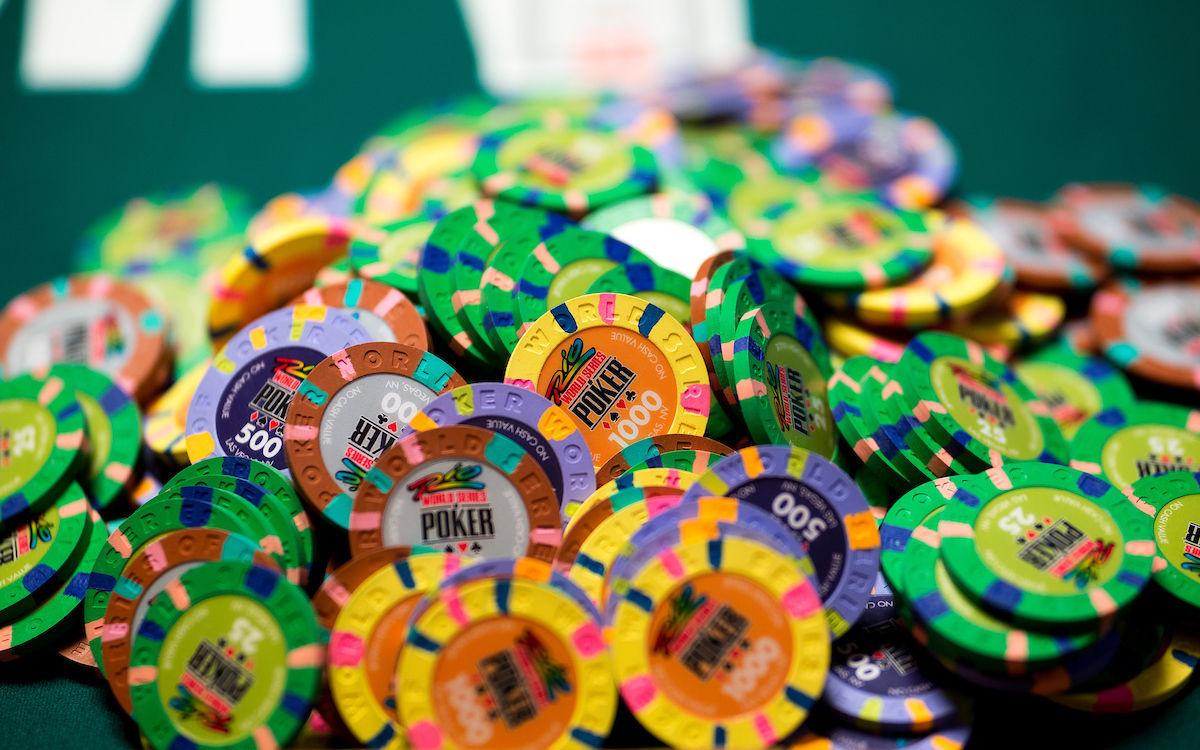Opening Poker Stake 4 Letters
For every poker game, 10 percent up of the pot, but no more than $5, goes toward the charity and the poker room, which is then split 50/50. Ulrich said that split helps them cover their operating. On this page you will find the solution to Poker stake crossword clue crossword clue. This clue was last seen on July 29 2019 on New York Times’s Crossword. If you have any other question or need extra help, please feel free to contact us or use the search box/calendar for any clue. Answers for poker stake (4) crossword clue. Search for crossword clues found in the Daily Celebrity, NY Times, Daily Mirror, Telegraph and major publications. Find clues for poker stake (4) or most any crossword answer or clues for crossword answers. Opening poker bet is a crossword puzzle clue. Clue: Opening poker bet. Opening poker bet is a crossword puzzle clue that we have spotted 3 times. There are related clues (shown below).
For as much as we all love poker and those involved in the game, it's no secret that the game can have its dark stories. Phil Galfond, a respected high-stakes poker player, recently brought to light one of those dark situations, and his story is the subject of this latest PokerNews Op-Ed.
This past week, I played in a big game at ARIA with some very successful players. At one point in the night, the conversation turned to debt, or more specifically, to people who owe us money. A couple of the stories were about those who'd fallen on hard times and were unable to repay a loan, but the majority of our tales were about outright thieves — people who set out to scam, cheat, or steal from the beginning.
It's disturbing how many of these people are out there, and how they play among us without everyone knowing what they really are. A couple of the names mentioned were people I'd heard of but had never heard anything bad about. At least one was present in the ARIA poker room as we were having the conversation.
We were laughing about it, I suppose because we had all survived despite being stolen from, but it's decidedly unfunny that all of these people keep their reputations intact to steal or scam again.
Many people don't 'out' their thief for fear of upsetting them, or for fear of losing leverage. Many believe that their debtor would pay if he were able to, or that they are close to a resolution. In some cases, this is true. In many, the debtor is simply keeping up appearances in order to maintain his reputation.
Opening Poker Stake 4 Letters Printable
Others don't speak up because they are embarrassed they were scammed, or because they simply want to avoid drama. They'd prefer to put the whole ordeal behind them, hoping in the back of their minds that one day they'll miraculously be repaid.
The problem is, those who set out to steal from others never have any intention to repay. They are often good at playing a part, and they benefit from our instinct to stay quiet.
We need to fight this instinct, not only to pressure those who owe us, but to show other would-be thieves that they can expect to be outed, and to protect good people from becoming victims.
The stories I heard from my friends are theirs to tell, but I'm going to tell a very recent one of my own. I hope that others will follow suit.

Samuel Touil plays occasionally in high-stakes live cash games in Vegas. He was in Vegas playing regularly this past winter, in between baccarat sessions, and I found myself in games with him on occasion. He seemed to be losing far more often than winning, but also to have an endless stream of reloading money.
One weekend, that stream dried up, and Sammy needed some money until his next wire arrived. Here is where the trouble begins.
The very short story here is that I loaned him $250,000. The long story as to why I did something so seemingly stupid is, well, long, and it involves other people who I don't want to get involved in any public drama.
While I'd like to expound on this part of the story so that I look less naive, it's not the part that matters.
Opening Poker Stake 4 Letters Template
I'd also like to make it clear that I'm absolutely not telling this story for sympathy. I made a decision. I knew the risks involved, and I'll handle the consequences. I'm sure many of you will think I made a dumb decision, and as it turns out, you'd be right.
Obviously, you know where this is heading. Sammy lost the money and left, telling me I'd get my $250,000 the next day. The next day turned into the next week, because 'banks were closed for Christmas.'
I knew I was in trouble after Sammy attempted two angles during that session. The first was your typical shorting-a-pot trick (putting less money in than he owed and hoping no one noticed).
In another hand, after shoving, Sammy's opponent said 'call' and flipped his hand up. Sammy threw his hand directly into the muck and argued vehemently to the dealer and the floor that his opponent had said 'fold.'
When they refused to side with him, Sammy tried to appeal to his opponent's sympathy for some of the pot back. This didn't work either.
Days later, I was told that another player in the game saw Sammy angle a third time, successfully shorting a pot against me.
Immediately, I was worried about my chances of being repaid. However, as I said, Sammy clearly had a lot of money. I remained optimistic, as it seemed clear he intended to stick around and play more poker, and that $250,000 wasn't a large sum to him.
Over the weekend I found out that Sammy was playing at Bellagio. I didn't want to play, but I decided to anyways in hopes that I'd be repaid. After that session, I managed to get back just $50,000.

If you're wondering why he was playing in a game instead of repaying me, trust me, I was too. He continued to insist that a wire was coming the next week and that he would pay me then. He needed the money he had left to gamble through the weekend.
'Don't worry, my friend,' he repeated again and again.
Some other players spoke up on my behalf, asking the Bellagio staff if there was anything they could do. Sammy had more than he owed me sitting on the table. Unfortunately, but not at all surprisingly, their hands were tied.
After leaving for a short while, Sammy claimed that he had lost the rest of the money at baccarat. I continued to press him that night to repay me. Eventually he got angry and threatened to claim that he lent me $50,000 that night (on camera) and that I owe it to him.
He left, insisting that I'd see my money on Tuesday.
He didn't have it on Tuesday, at which point I had to leave for a family trip. I gave him my wire instructions and the name of other players still in Vegas he could give the money to. He acted very serious about making sure he got all the proper wire details.
From that point on, he dodged me for months.
Last week, after receiving a letter from my lawyer, he finally told me he wanted to talk. I called, cautiously optimistic while waiting for him to pick up.
Sammy answered, then pretended to be confused by my lawyer's letter. He told me that he 'borrowed $50,000 and paid me back $50,000,' and that we are square. I told him the conversation was pointless and said goodbye.
I now know of two other players who have been scammed by Sammy. If they (or others) would like to speak up, I encourage them to, but it's not my business to speak up on their behalf.
Many people scam for survival, or at least for greed, but I believe Sammy cheats and steals purely for sport. He's a reminder that wealth isn't a sign that someone can be trusted.
I hope that in telling this story I can prevent Mr. Touil from ever scamming another poker player. I hope that others can learn from my experiences, and that more players will speak up so that the rest of the community can learn from theirs.
My advice to other players, beyond the obvious, is to remember that those who scam and get away with it do so because of two things:
- They are good at it. They are charming and they appear genuine and trustworthy, and
- They keep their reputation intact
If you haven't heard something bad about someone, it doesn't mean you can trust them. If someone seems nice and personable, it doesn't mean you can trust them. The hustlers are usually the charming ones.
Opening Poker Stake 4 Letters Crossword
Lastly, remember that keeping the secret of a thief allows them to continue taking money from other people.

I really didn't feel like talking about this publicly and dealing with any drama, but more than that I don't want to give Sammy the satisfaction of doing this to someone else.
*Touil did not respond to PokerNews' request for comment.
Please note that the thoughts and opinions expressed in this article reflect those of the author and not of PokerNews.
Want to stay atop all the latest in the poker world? If so, make sure to get PokerNews updates on your social media outlets. Follow us on Twitter and find us on both Facebook and Google+!
Tags
BellagioPhil GalfondPoker cheatsPoker PlayersRelated Players
Phil Galfond
NL Hold’em Starting Hand Charts
One aspect of the game of No-Limit Hold’em that causes beginning players much grief is deciding which hands to play and which hands to dump. NL Hold’em is much more difficult than Limit Hold’em because the value of a hand depends on so many factors other than just the cards in your hand. Despite this difficulty, our coaches believe that following some general guidelines and adjusting from these is a better solution than having no guidelines at all. Given that well over half of your profitability in NL Hold’em is based on hand selection alone, we have developed these charts to help you better determine whether to play or fold.
There are no perfect No-Limit starting hand charts. That is because there are many factors that affect your decision, and charts cannot account for all of them. Some of these include:
- The size of your opponent's stacks.
- How loose or tight, passive or aggressive, your opponents are.
- Where these opponents are located at the table – for example, does an aggressive player still have to act after you?
- Your image at the table – for example, how tight or tricky you are perceived.
That being said, these charts will serve you well in most typical low-stakes No-Limit cash games, such as games with blinds of $1/$2, and home games. These games typically have several loose players at the table, and good opportunities for winning big pots with suited connectors and pocket pairs. With practice, you will be able to be a consistently winning player with these charts as a starting point. As you improve, you'll find yourself making adjustments to these charts based on the factors listed above, and more.
AGAIN: These charts are a good starting point for beginners. Specifically, Chart #1 recommends a significant amount of limping. This is great in loose, passive games but less often seen in tougher games. You’ll find other training material on Advanced Poker Training that may recommend a more aggressive approach for more experienced players.
Note: It would be a serious mistake to apply these hand charts before reading the Frequent Asked Questions first.
Opening Poker Stake 4 Letters Generator
CHART #1 ‐ LOOSE, PASSIVE GAME (OFTEN 4-5 LIMPERS PER HAND)
NO ONE HAS RAISED YET
- Raise Always
- Call from Early Position, otherwise raise
- Call always
- Call from Middle or Late Position if the conditions are right (see Frequently Asked Questions)
CHART #2 ‐ TIGHTER GAME (FEWER LIMPERS) OR MORE AGGRESSIVE GAME
NO ONE HAS RAISED YET
- Raise Always
- Call from Early Position, otherwise raise
- Call (or Raise) from Middle or Late Position if the conditions are right (see Frequently Asked Questions)
CHART #3 ‐ THERE HAS BEEN A SINGLE RAISE
(3‐5 TIMES THE BIG BLIND) BEFORE YOU
- Re‐Raise Always
- Call from Early Position, otherwise re‐raise
- Call always
- Call from Middle or Late Position if the conditions are right (see Frequently Asked Questions)
FREQUENTLY ASKED QUESTIONS
For the hands in yellow, what do you mean when you say to play these hands if the conditions are right? The hands in yellow are speculative hands. They should always be folded from Early Position. From other positions, they can be profitable given the right conditions. Some of the questions to ask yourself:
- Are there other players who have called so far (the more, the better)?
- Are the players who have called playing poorly after the flop? Will they pay me off if I hit something?
- Is there an aggressive player still to act behind me (you might get raised and have to fold)?
- If there has been a raise and no other callers, what chance do I have of using my position after the flop to win the hand even if I don't improve (Chart #3 only)?
Why does Chart #2 say to sometimes raise with the hands in yellow, but Chart #1 does not? We have different goals in mind. Using Chart #1, we want to call to encourage additional players to enter the pot. These hands will be immensely profitable when our loose, passive opponents enter the hand, and get trapped when we flop a set, or make a well-disguised straight. When using Chart #2, however, we want to size up the opponents still to act. If they are tight, we can raise. Sometimes, we'll pick up the blinds. Other times, our pre-flop aggression will allow us to take down the pot on the flop.
What's the difference between AKs and AKo? AKs means an Ace and King of the same suit. AKo means an Ace and King of different suits.
What are early, middle, and late position? Early Position is generally the first 2 (in a nine player game) or 3 (in a ten player game) positions after the blinds. Late Position is the “cutoff” position (to the right of the dealer), and dealer button positions. Middle Position is everything in between.
How much should I raise? As a general rule, raise 3 to 4 times the big blind, plus 1 extra big blind for every player who has called before you. So if there are 2 callers already, raise between 5 and 6 times the big blind.
What if someone raises after I call? Whether you call the raise depends on how much money the raiser has for you to win, how many other players are involved, and what type of hand you have. As a general rule, if you have a pocket pair, lean towards calling. If there are a lot of other players (and therefore a big pot), lean towards calling. In general, fold suited connectors from early position. Fold hands like KQ that don't play well against a raiser.
How do I play from the blinds? From the small blind, play the same hands you would play from late position, plus a few more. But don't call with junk hands like T5o, just because it is “cheap”. From the big blind, if there is a raise to you, play like you would if you had already called from early position.
The chart says to fold KQo to a raise. Really? Yes, this hand performs very poorly against typical raising hands. Against AK, AQ, AA, KK, QQ, you are a big underdog. Other typical raising hands like JJ, TT, 99, AJs, are slightly ahead of you as well. The only time you might call or re-raise is from late position, if the opener was in middle or late position, indicating they might have a wider range of hands.
I was told to fold AJo from Early Position, why do you say to call with it? Folding AJo is not a bad idea in many games. We included it because, at low stakes tables (even tight or aggressive ones), the players are often playing badly enough after the flop that it can be profitable. We used data from millions of hands of low-limit poker to analyze this. The same could be said for KQo, ATs, and KJs – you can make a small profit in the long run at most low-stakes games, but folding would be perfectly acceptable from early position.
Can I use these charts in a NL Hold'em tournament? The charts would be best applicable to the early stages of a NL tournament, when everyone has a deep stack. In the middle and later stages, they should not be used.
